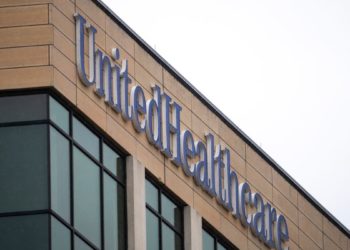In a windowless conference room at the Harvard T.H. Chan School of Public Health last Thursday, Amanda Spickard, an associate dean, sat with half a dozen colleagues, improvising a plan for the havoc about to unfold.
Within a few hours, more than 130 researchers at the graduate school would receive emails canceling the federal funding for their work. No other division of the university relies as heavily on government support, and Ms. Spickard’s team was all too aware that the loss of tens of millions of dollars would end careers, halt progress toward medical breakthroughs and reshape the institution.
As recently as a few weeks ago, everyone at the table had been consumed with other tasks in the Office of Research Strategy and Development, smoothing wrinkles with lab equipment or scientific journals for faculty members, who number nearly 200, and other researchers. Those concerns now seemed quaint and distant.
“Other work has ground to a halt, because this is all-consuming,” Ms. Spickard said. “We’re professional troubleshooters, but now for 190 people at the same time, all facing an existential crisis.”
Since April 14, when Harvard refused to comply with a list of demands from the Trump administration, the Chan School had braced for a crackdown. The administration promised to freeze more than $2 billion in grants and contracts to the entire university; the public health school had been slated to receive more than $200 million in federal grants and contracts in the current fiscal year.
The administration has argued that wealthy universities like Harvard, which has a $53 billion endowment, should be able to fund their work without the help of the federal government. In a recent letter to Harvard, the education secretary, Linda McMahon, wrote that the university “should have no problem using its overflowing endowment to fund its bloated bureaucracy.”
The faculty at the Chan School had watched with growing trepidation as early “stop work” orders trickled in from the government and the school began to scale back spending. Among other things, it ended leases on off-campus buildings, cut summer programs for high school students and replaced an end-of-year reception with a “spring stroll” in a public garden.
Then last week, the trickle became a flood, swamping a school where 59 percent of operating revenue comes from the federal government and other outside sponsors. By comparison, Harvard Medical School receives 35 percent of its revenue from such sponsors, the Graduate School of Education 22 percent, the Kennedy School of Government 16 percent, and Harvard Law School 3 percent.
“It’s one thing to suspect it, and another thing to go through it,” said Marc Weisskopf, a professor of environmental epidemiology at the Chan School, who was off campus at a symposium on aging when the email canceling his funding appeared in his inbox. “It feels like a gut punch.”
Painful as it was for him to contemplate the end of his 20-year quest to understand why military veterans are more likely to be diagnosed with amyotrophic lateral sclerosis, or ALS, Dr. Weisskopf said his first thought was his staff, 10 to 15 researchers whose jobs and futures were now at serious risk.
Originally established in 1913 as the Harvard-M.I.T. School of Health Officers, the first professional training program in the country for public health leaders, the school became its own degree-granting branch of Harvard in 1946. It was renamed in 2014 after a record-breaking $350 million gift led by Gerald Chan, an alumnus who intended it to be “a tool for stimulating the spirit of service.”
A key element of its mission has been to improve the health of underserved groups, including women, children, people of color and L.G.B.T.Q. people. That focus on “health equity” has made the school a target of the Trump administration, which initially told some Chan researchers that their funding had been stopped because of “amorphous equity objectives” that were “antithetical to scientific inquiry.”
Such goals, federal health officials wrote to at least one student researcher, “do nothing to expand our knowledge of living systems, provide low returns on investment, and ultimately do not enhance health, lengthen life or reduce illness.”
As Harvard hardened its position, the funding freeze expanded to every corner of Chan’s portfolio. The administration’s explanations grew less nuanced, and became more broadly focused on Harvard’s “troubling entitlement mind-set,” and allegations that the university had allowed antisemitism to fester unchecked.
Other top-tier schools of public health have also taken hits, including the Bloomberg School of Public Health at Johns Hopkins University. But no other place has seen its federal support so fully withdrawn as the Chan School.
“This is ground zero,” said Walter Willett, a Chan epidemiologist who has spent 40 years studying the effects of diet and other lifestyle factors on heart disease and cancer.
As technology rapidly advances, he said, the potential of biomedical research is fast expanding, as is the value of the repositories that the school has built over decades. In one storage facility on campus, three million blood and urine samples, collected from 100,000 nurses over more than 40 years, are kept in freezers filled with liquid nitrogen, available for use by scientists around the country.
The United States is now at risk of falling behind, just as it was poised for acceleration, Dr. Willett said: “We’re giving away one of the few areas, biomedical science, where we have had global leadership.”
The research at the Chan School is dizzying in its diversity. Among hundreds of other subjects, faculty members study aging and life spans; the connection between Medicare coverage and mortality; the cancer risk of eating red meat; links between environmental exposures and dementia; the parasites that cause malaria; children’s mental health in migrant detention centers; and the relationship between coffee consumption, gut health and colon cancer.
Among those who have been ordered to end their funded research is Sarah Fortune, a tuberculosis expert seeking better prevention and treatment for the disease, and Alberto Ascherio, an epidemiologist whose work probing causes of multiple sclerosis, by tracking the health of 10 million soldiers, won a prestigious Breakthrough Prize last month after he found that people infected with the Epstein-Barr virus were at increased risk of developing M.S.
In retrospect, some of the school’s scientists said, it would have been wise to diversify their funding sources. But because the federal grant review process is known for its competitive rigor, the school had seen its robust federal support as evidence of strength, not weakness or dependency, administrators and researchers said.
Defenders of the school say that the Trump administration’s narrative has twisted the long history of fruitful collaboration between the government and universities, depicting scientists as freeloaders without acknowledging the lasting public benefit of deep research investments.
“It came out of the government saying, back to World War II, ‘We want to lead the world in science and technology,’” said Ms. Spickard, the associate dean. “They were commissioning us to do this work.”
Kenneth L. Marcus, who served as head of civil rights in the Education Department during the first Trump administration, said that did not free Harvard from responsibility for its campus climate.
“As government officials, we often have an agonizing choice between cutting beneficial programs and permitting continued civil rights violations,” said Mr. Marcus, the chairman of the Louis D. Brandeis Center for Human Rights Under Law.
The Chan School’s compact campus — wedged among highly rated hospitals such as Brigham and Women’s and the Dana-Farber Cancer Institute in the Longwood neighborhood of Boston — sits across a courtyard from the towering marble columns of Harvard Medical School. About 40 percent of Chan students are international, and conversations in English, Spanish and Japanese could be heard in its halls one recent afternoon.
The tables in the cafeteria were covered with white paper last week, so students stressed by finals could take a coloring break. In the busy atrium at the school’s main entrance, a staff videographer recruited students and scientists passing by to describe their research in just seven words, part of a crisis-driven push to clearly communicate the school’s contributions.
That skill will be critical as Chan tries to pivot to new funding sources, said administrators, who are rapidly planning workshops where faculty members can hone their elevator pitches and learn strategies for networking with potential industry and foundation donors.
First, though, researchers will have to master other new skills, like how to lay off staff members and notify thousands of longtime study participants that their help may no longer be needed. At their planning meeting last week, research staff members devised a “bad news care package” to be emailed to lead researchers, with links to policies and contacts that they would need as they winnowed their teams and wound down their studies.
“We’re asking faculty, in a very taxing, chaotic time, to also be entrepreneurial,” Ms. Spickard said, “and that’s a tall order for people whose life work is being undone in real time.”
Some of the school’s researchers are already being recruited by universities in Europe and China who see a sudden opportunity, said Karen Emmons, a professor of social and behavioral sciences. Others may find their prospects, and enthusiasm, dimmed as a result of what is happening.
“Feeling like a pariah is hard for younger people,” she said. “It’s a very different way of being.”
Disha Ganjegunte, who is graduating next week with a master’s degree in global health, and is the president of the Chan School’s student government, said the pressure on the school had only deepened her commitment to her work in human rights and conflict resolution.
“Opposition doesn’t make these issues any less real,” she said. “Public health as a field is very resilient, and it’s overcome a lot, from climate change to human rights being questioned. I think what’s happening is a wake-up call, and it only makes me more stubborn.”
Jenna Russell is the lead reporter covering New England for The Times. She is based near Boston.
The post Federal Cuts Become ‘All Consuming’ at Harvard’s Public Health School appeared first on New York Times.




